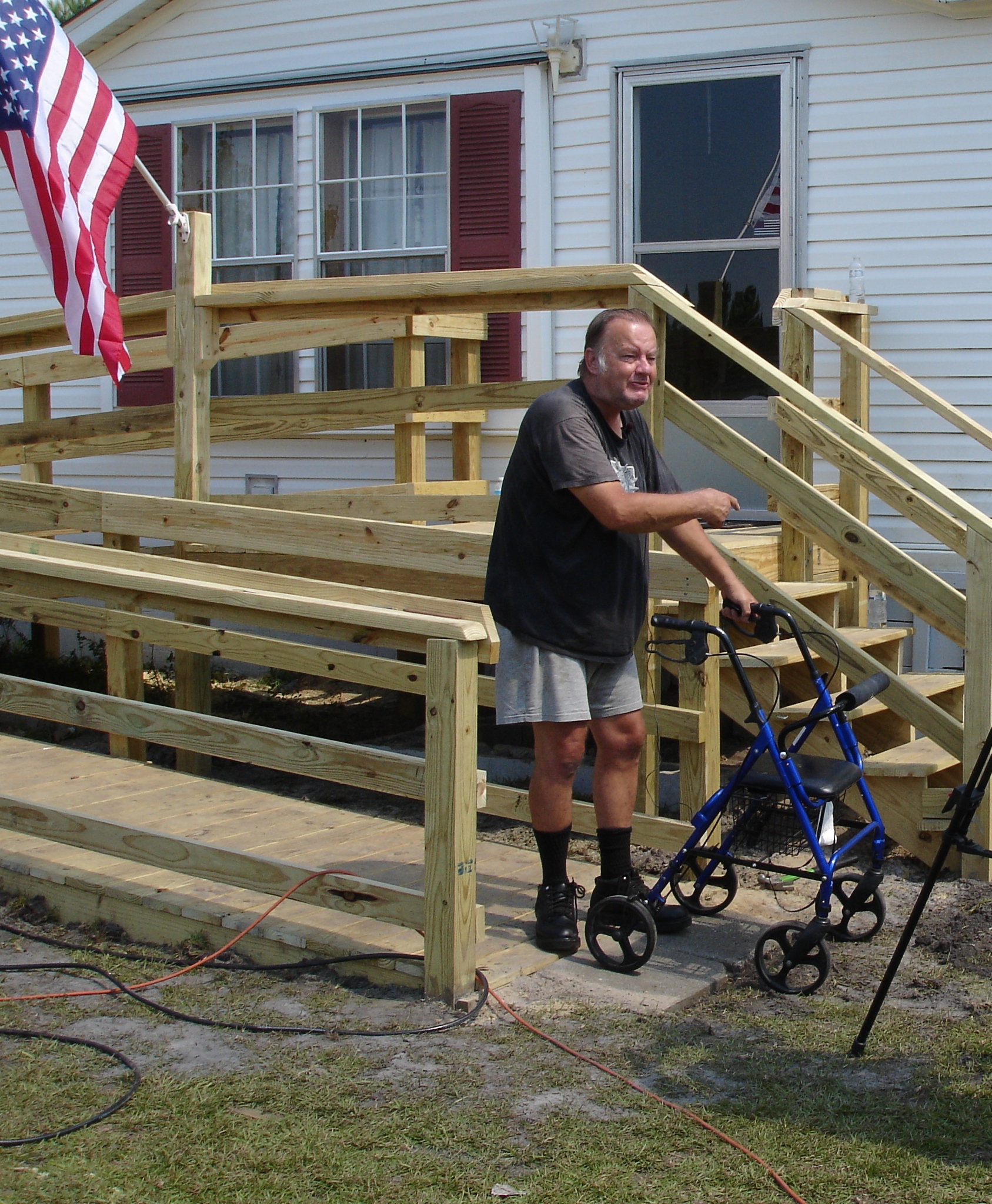We all depend on our homes to provide a safe, secure, and healthy place to eat, rest, play, and perhaps work. When we don’t have it, life starts to unravel. In some cases, a home’s deficiencies cause sickness and injuries that result in suffering, time missed from work or school, medical bills, and debt.
Addressing those deficiencies through home rehabilitation has the power to reduce and eliminate threats to the residents’ health.
Rosa is raising her three granddaughters on social security payments of $900 per month and couldn’t afford to replace the leaky roof on her mobile home. She and two of the young girls developed respiratory illnesses due to the mold on their living room ceiling.
David lost his balance while dragging his walker down his rickety front steps. He fell and injured his wrist. Look at David showing off his new ramp built by WARM volunteers!

Forty-five percent of U.S. homes have at least one health or safety hazard, according to the National Center for Healthy Housing (NCHH). According to their website:
Statistically, the home is the most dangerous place for U.S. families. Nearly six million families live in housing rivaling that of developing countries, with broken heating and plumbing, holes in walls and windows, roach and rodent infestation, falling plaster, crumbling foundations, and leaking roofs.
Studies compiled by the NCHH found that in the United States:
YMCA Eyes Growth With Plans For New, Expanded Facilities
Emma Dill
-
Apr 23, 2024
|
|
Burns, Redenbaugh Promoted At Coastal Horizons
Staff Reports
-
Apr 23, 2024
|
|
Cold Storage Developer Sets Near-port Facility Completion Date
Audrey Elsberry
-
Apr 24, 2024
|
|
Wilmington Financial Firm Transitions To Wells Fargo's Independent Brokerage Arm
Audrey Elsberry
-
Apr 24, 2024
|
|
Krug Joins Infinity Acupuncture
Staff Reports
-
Apr 23, 2024
|
|

“Our little town, especially the mainland area, is growing by leaps and bounds. So having somewhere else besides the beach for kids to go an...

Baristas are incorporating craft cocktail techniques into show-stopping coffee drinks, and bartenders are mixing espresso and coffee liqueur...

W.R. Rayson is a family-owned manufacturer and converter of disposable paper products used in the dental, medical laboratory and beauty indu...
The 2024 WilmingtonBiz: Book on Business is an annual publication showcasing the Wilmington region as a center of business.
